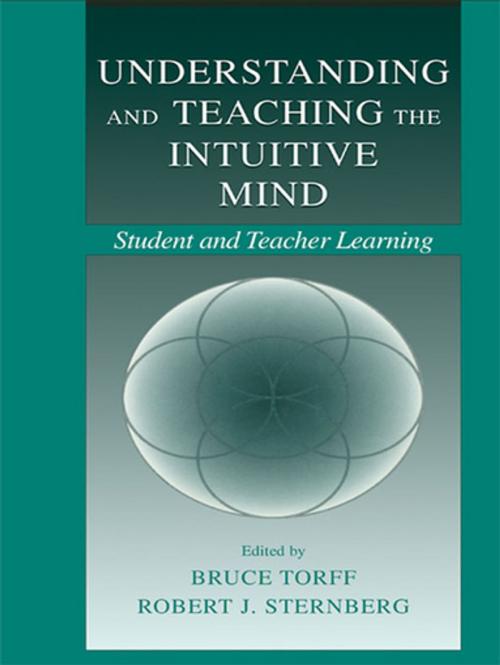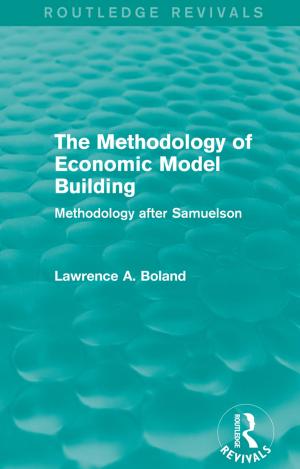Understanding and Teaching the Intuitive Mind
Student and Teacher Learning
Nonfiction, Reference & Language, Education & Teaching, Educational Theory, Educational Psychology| Author: | ISBN: | 9781135673833 | |
| Publisher: | Taylor and Francis | Publication: | January 1, 2001 |
| Imprint: | Routledge | Language: | English |
| Author: | |
| ISBN: | 9781135673833 |
| Publisher: | Taylor and Francis |
| Publication: | January 1, 2001 |
| Imprint: | Routledge |
| Language: | English |
The intuitive mind is a powerful force in the classroom and often an undetected one. Intuitive conceptions--knowledge or knowledge-structures that individuals acquire and use largely without conscious reflection or explicit instruction--sometimes work to facilitate learning in the classroom and other contexts. But learning may also be impeded by intuitive conceptions, and they can be difficult to dislodge as needed. The literatures in psychology and education include a large and diverse body of theory and research on intuitive conceptions, but this work is limited in some respects. This volume contributes in four ways to overcome these limitations. Understanding and Teaching the Intuitive Mind: Student and Teacher Learning:
* pulls together diverse theoretical and methodological approaches to the origin, structure, function, and development of intuitive conceptions;
* explores a diversity of academic disciplines--paying equal attention not only to mathematics and science, the fields in which intuitive concepts have been studied most extensively, but also to the social sciences, arts, and humanities;
* explicitly links theory and research to educational implications and classroom applications; and
* focuses not only on students' intuitive conceptions but also on teachers' intuitive beliefs about learning and teaching.
Although the viewpoints of the contributors are diverse, they share the belief that educational practices have much to gain by systematic studies of the intuitive learner and teacher. This volume offers state-of-the-art, research-based information and support for psychologists, teacher educators, educational administrators, teachers, prospective teachers, and others who seek to develop educational practices that are cognizant of (and responsive to) the intuitive conceptions of students and teachers.
The intuitive mind is a powerful force in the classroom and often an undetected one. Intuitive conceptions--knowledge or knowledge-structures that individuals acquire and use largely without conscious reflection or explicit instruction--sometimes work to facilitate learning in the classroom and other contexts. But learning may also be impeded by intuitive conceptions, and they can be difficult to dislodge as needed. The literatures in psychology and education include a large and diverse body of theory and research on intuitive conceptions, but this work is limited in some respects. This volume contributes in four ways to overcome these limitations. Understanding and Teaching the Intuitive Mind: Student and Teacher Learning:
* pulls together diverse theoretical and methodological approaches to the origin, structure, function, and development of intuitive conceptions;
* explores a diversity of academic disciplines--paying equal attention not only to mathematics and science, the fields in which intuitive concepts have been studied most extensively, but also to the social sciences, arts, and humanities;
* explicitly links theory and research to educational implications and classroom applications; and
* focuses not only on students' intuitive conceptions but also on teachers' intuitive beliefs about learning and teaching.
Although the viewpoints of the contributors are diverse, they share the belief that educational practices have much to gain by systematic studies of the intuitive learner and teacher. This volume offers state-of-the-art, research-based information and support for psychologists, teacher educators, educational administrators, teachers, prospective teachers, and others who seek to develop educational practices that are cognizant of (and responsive to) the intuitive conceptions of students and teachers.















